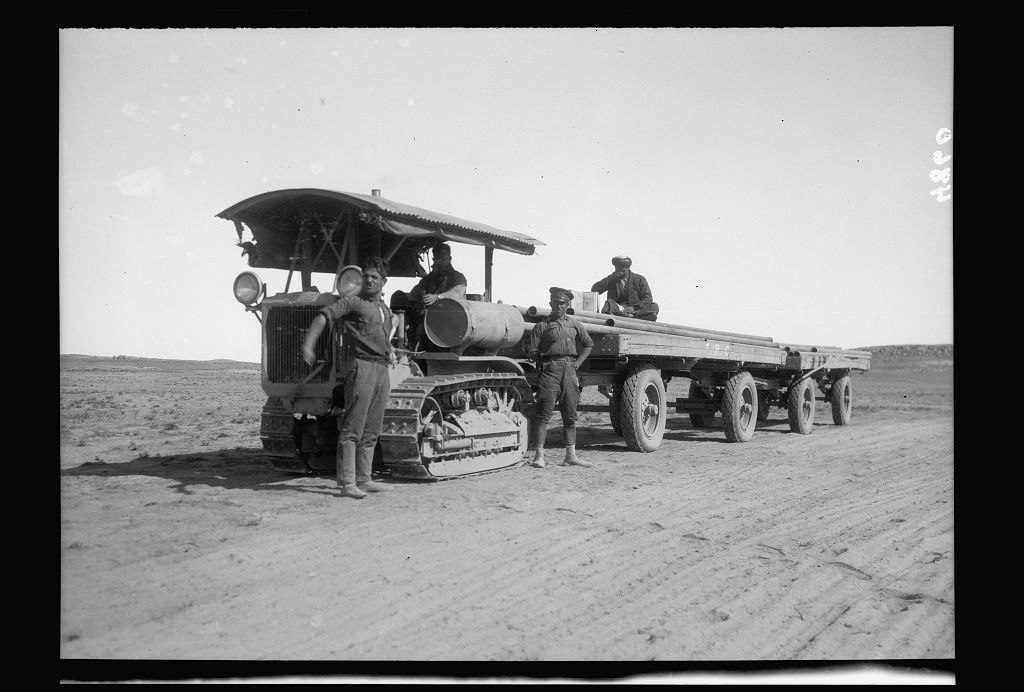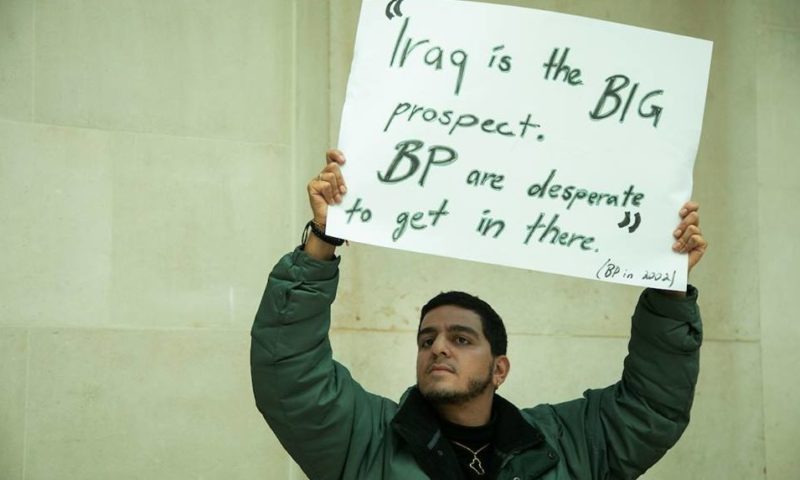‘Iraq is the big oil prospect. BP are desperate to get in there.’
– UK Foreign Office memo, 6 November 2002
Minutes of a meeting between BP and the UK Foreign Office reveal how, just a few months before the 2003 US/UK invasion and occupation of Iraq, BP was lobbying the British government to help the company access Iraq’s immense oil reserves. BP calls the reserves “Vitally important – more important than anything we’ve seen for a long time.”
That meeting was one of five in which the Blair government discussed Iraq’s oil with BP and Shell in the run-up to the war. The companies denied any such meetings took place. It was years later that the minutes were obtained through Freedom of Information requests and revealed in the book Fuel on the Fire by Greg Muttitt, which tells the full story of how throughout the war, occupation and aftermath, BP kept its eyes on the prize.
The illegal invasion and subsequent Iraq war killed hundreds of thousands of Iraqi civilians and destroyed their country. We may never know the exact number of deaths, but estimates range from 151,000 violent deaths as of June 2006 to 461,000 total deaths as of June 2011. Many more have perished in the aftermath or lost their homes, livelihoods and loved ones.
Sixteen years later, Iraq is still reeling from the effects and aftermath of the war and occupation. Public institutions have collapsed, infrastructure has been decimated, new terrorist groups such as Daesh (Islamic State) have arisen, poverty and hardship have increased dramatically and corruption is rife – another inevitable consequence of institutions built through occupation.
BP’s revolving door
BP got its wish. It was the first western company to set up shop in post-war Iraq in 2009. Greg Muttitt’s book demonstrates just how closely the UK government and BP worked together before, during and after the invasion to serve the company’s interests:
- In 2004, BP hired Sir Jeremy Greenstock, who had been Britain’s Special Representative to Iraq. Just three months into the new job he and his new BP boss, John Browne, jointly met Iraqi Prime Minister Ayad Allawi to lobby for BP.
- Terry Adams, former head of BP Azerbaijan, was hired by the UK government to write Iraqi oil policy, and to help transfer the publicly-owned oil production into the hands of companies like BP.
- When in 2009 long-term contracts were offered to multinationals, ‘the Iraqi government was little more than a puppet,’ according to Muttitt, ‘consisting of UK and US allies who’d had no administrative experience before the occupation put them in power. So they needed to be trained in oil negotiations. The training provider? BP.’
- In a public auction two months later, BP won the contract for Rumaila, Iraq’s largest oil field. But, reveals Muttitt, ‘even this was not enough, so over the following months, BP entered a private negotiation with the Iraqi oil minister, without civil service oversight. The result was a contract much more favourable to BP.’
- The Chilcot enquiry into the Iraq war revealed in 2016 that BP had started a technical review of the Rumaila field as early as 2003.
A history of war for oil
At their heart, the war and occupation were designed to serve oil interests above all else. This is perhaps a natural extension of BP and the British government’s long and shameful history of intervening in Iraq in order to extract its oil wealth.

Matson Collection [Public domain], via Wikimedia Commons
In 1915 the UK government bought a 50% stake in the Anglo-Persian Oil Company, BP’s precursor, and promptly invaded Southern Iraq – then part of the Ottoman Empire – with access to its oil as a leading objective. Britain occupied and administered the new state of Iraq at the end of the First World War, remaining influential after independence and ensuring its oil companies could maintain their domination over the region’s oil until the 1970s. In fact, some have suggested that a century-long quest by US and UK oil companies to control Iraq’s huge oil reserves drove up to seven wars, including the 2003 conflict.
Prior to that, British companies (with the backing of the British government) had been actively involved in selling arms to Saddam Hussein despite his well-documented violations of human rights, including the horrific massacre of the Kurds at Halabja using chemical weapons. This close trading relationship lasted right up to his August 1990 invasion of Kuwait, when suddenly Saddam was recast as the UK’s enemy. This is another example of a common pattern: the UK government working hand in hand with big British companies to put profit before the lives of ordinary people, currying favour with human rights abusers when it’s in their interests, intervening militarily when their interests shift, then looting the spoils.
__________
Continue to the next section: Iraqis have held massive protests against the impacts of foreign oil companies
Return to the introduction: From war to warming: the shameful story of BP in Iraq
